A couple of years back, I took some time to write up some quick and unambitious reviews of books that I’d read – the good, the bad and the ugly. To be honest, I mostly did it because I hated the Southern Reach trilogy with the white hot intensity of a thousand suns. A year later, I repeated that process. Nothing fancy, just quick thoughts on some of what I’d been reading for people that might be looking for something new to read.
A month after that last post we had a kid and time to read – let alone write – came at something of a premium.
Fast forward a little less than two years and time is still very much at a premium, but I’m now able to sleep in more than three hour increments. Which means that I’m able to read again, if not at the pace I was familiar with. Which in turn means that I’m once more capable of having conversations with other friends who read, and with whom I trade book recommendations.
In an effort to scale that process, I’ve repeated the exercise of reviewing the last few books I’ve run through. This time, just for the record, I’ve added Amazon links not for the pennies I’d earn but to see whether any of the recommendations work, and if so which ones. With that, here are the reviews.
The Modern Entertainment
Station Eleven, Emily St. John Mandel
One of a growing set of “literary” fiction set in post-apocalyptic environments, Station Eleven has been compared in some quarters to Cormac McCarthy’s The Road. It’s not in that class of novel for me, but then there are few that are. Station Eleven is, however, a brilliantly executed and well written account of the world after the end of the world. It avoids nearly all of the pitfalls of the genre, it’s strikingly original and the quality is well above average. Recommended.
If you like this, try: The Last Ship (William Brinkley), The Stand (Stephen King)
The Beautiful Thing That Awaits Us All, Laird Barron
Originally described as a better written Lovecraft without the racism, this pretty much lived up to the billing. It’s a set of short stories that is best classified as “weird fiction,” which is another way of saying that if you like Lovecraft or the first season of True Detective, chances are pretty good you’ll like these. What’s distinctive about this collection beyond the relative quality of the prose is the diversity of settings and characters: from loggers to hunters to Prohibition gangsters, you’re not reading slightly different versions of the same story again and again. Barron also understands well what so many modern horror directors forget, that what can’t be seen is more frightening than what can be.
If you like this, try: The Complete Collection of H.P. Lovecraft (Lovecraft) or Between Here and the Yellow Sea (Nic Pizzolato)
The Hike, Drew Magary
The fact that I’m recommending this in spite of Drew Magary’s hatred for my beloved Maine (which outdoes even Lev Grossman’s) tells you something about the quality of The Hike. It’s difficult to describe this book. It’s not quite magical realism, not quite surreal, but it’s got elements of both. It’s dark at times, but has a heart and the prose makes for a quick read as it’s not terribly ambitious. It’s a perfect beach read, in other words, and the end delivers.
If you like this, try: Angelmaker (Nick Harkaway) or The Book of Lost Things (John Connolly).
The Classics
Right Ho, Jeeves, P.G. Wodehouse
Inexplicably, I somehow made it to adulthood without reading any of the Jeeves’ novels by P.G. Wodehouse. I wish I’d found them years ago, however, because they’re incredibly enjoyable. If you’re unfamiliar with the series, it’s the story of a British valet trying to keep his dim employer out of trouble. The latter ignores the former’s advice, hilarity ensues. If you enjoy Dilbert’s “The Boss is an Idiot” brand of humor but can’t deal with Scott Adams’ obvious and growing insanity, the Jeeves’ novels are for you.
Trouble is My Business, Raymond Chandler
There’s a funny story about Bacall/Bogart’s 1946 film The Big Sleep based on the novel of the same name by Raymond Chandler. During filming, neither the director nor the screenwriter could figure out who killed Bacall’s chauffeur in the novel, so they asked Chandler. Problem is, he didn’t know either.
The point is that Chandler isn’t considered a master of the hardboiled crime genre for his plotting skills. The stories are interesting, to be sure, and include the requisite action and drama. But what distinguishes Chandler from hundreds of others in the genre is that he can write. In a characteristic clipped style with sparse but stylish dialogue, Chandler has Marlowe, the private detective that is literally the prototype, weave his way through what we’d today refer to as a noir landscape.
Trouble is My Business isn’t the equal of The Big Sleep or The Long Goodbye, but it’s an accessible set of short stories that will give you an idea of whether Chandler’s for you.
If you like this, try: The Big Sleep (Chandler) or Red Harvest (Dashiell Hammet).
The (Auto)Biographies
The Stranger in the Woods, Michael Finkel
Many of us idly contemplate leaving everything behind at some point, but almost no one does it. And certainly no one does it the way that Christopher Knight did, who parked his truck and simply walked into the Maine woods and lived as a hermit without human contact for 27 years. If you read Michael Finkel’s profile of Knight in GQ when it came out, you already have the gist of the story, but this full length treatment affords the author and his (very reluctant) subject more room to explore the details of just how one goes about surviving in the Maine woods without ever seeing anyone or making a fire. Whatever one thinks about Knight, his adaptability to incomprehensibly harsh conditions is without ready comparison. Don’t expect any mystical revelations or real confessions from The North Pond Hermit, but if the story interests you this will more than flesh it out.
The Road, Jack London
If you’re like me, you read Jack London in school, probably at an early age. Call of the Wild, White Fang, To Build a Fire – one of those. If you’re like me, you didn’t know that London spent years of his life as an itinerant, rail-riding hobo and later documented his experiences criss-crossing North America by hopping trains in a decidedly unstandard autobiograhy. As someone who enjoys learning more about other times and places, this was interesting, but the culture, methodology and art of riding the rails made this a particularly fascinating read. My only warning: because this was published in 1907, like many historical works, some of the descriptions and language are offensive to modern ears. If you can get by that, however, it’s a look at a bygone world that most of us knew nothing about.
If you like this, try: The Amateur Emigrant (Robert Louis Stevenson)
The One on Firewood (Seriously)
Norwegian Wood: Chopping, Stacking and Drying Wood the Scandinavian Way, Lars Mytting
To be fair, while this was a best seller throughout Scandinavia, as a book about chopping, stacking and drying wood, it’s less likely to be a page turner for those of you without woodstoves or at least a fireplace. Which is, presumably, most of you reading this. Even so, it’s well written and anything but a textbook. The prose has a bit of a lighthearted “The Hundred-Year-Old Man Who Climbed Out of the Window and Disappeared“-quality to it, and is surprisingly enjoyable. It’s informative and well researched, but as surprising as it might be to say that a book about firewood was a great read, it really was. There’s a reason it had basically a five star rating with north of a hundred reviews when I bought it. If you have a stove or fireplace, it’s a must buy, and even for the rest of you, you’ll learn something and be entertained in the process.
The Histories(ish)
Kon Tiki, Thor Heyerdahl
This was my second reading of Kon-Tiki, as I’d read a copy as a very young child at my grandfather’s place on the Cape. Besides refreshing myself on the actual details of the journey of a handful of young men on a Balsa raft all the way across the Pacific, my adult self was curious as to how some of the historical theories of Heyerdahl had aged. The answer is: not particularly well. Heyerdahl’s theory of a lost white race that taught the Incas everything they knew being the ancestors of today’s Polynesian populations is not only largely disproven by modern genetic research, it’s also implicitly racist when viewed from a modern perspective.
That’s the bad news. The good news is that, shaky historical theories notwithstanding, Kon-Tiki is still a fascinating read. While Heyerdahl may have been wrong about the idea that Polynesia was populated by South Americans traveling west on the Pacific’s Humboldt current to Polynesia, he risked his life and proved that it could be done. If nothing else, Kon-Tiki is a remarkable story of human achievement and drive and worth a read for that alone.
Atlantic, Simon Winchester
I read this at my parents’ recommendation and while I’m not quite sure what I was expecting, it wasn’t what I got. Atlantic is essentially a series of personal or historical anecdotes upon which are hung a stupefying amount of detail and research from geology to climatology. The good news is that if pure science isn’t your thing, you don’t have to wait long before the author’s talking about the time he spent in Greenland or the Falkland Islands or visiting a remote shipwreck on the coast of Africa. If you enjoy history, geology, oceanography, local cultures or a thousand other areas of study, you’ll find something to love about this book.
An Instance of the Fingerpost, Iain Pears
If you enjoy historical fiction generally and historical mysteries such as The Name of the Rose specifically, you’re likely to enjoy An Instance of the Fingerpost by Iain Pears. I don’t mean to imply that it’s in the class of Eco’s masterpiece, but set in late seventeenth century England, Pears’ novel is an account of the same series of events told from four different perspectives – all of which are unreliable, some more than others. The varying perspectives affords the novel greater breadth than it would have had access to if restricted to a single narrator, both in terms of their socio-cultural standing as well as their geographic access. It doesn’t have the blinding erudition or strict attention to period language that characterizes other novels of this type, but what it lacks in rigid adherence it more than makes up for in accessibility. Which means that you don’t need to be a scholar of English history of the period to enjoy the novel, which traverses ground from the royal court to academia. It’s on the longer side, but it’s time well spent in my opinion. Recommended.
If you like this, try: The Name of the Rose (Eco) or Q (Luther Blissett).
The Meh
Fer-Da-Lance / The League of Frightened Men, Rex Stout
Link, Link
Before the hard boiled detective fiction of Raymond Chandler, there was the so-called “cosy” school of which Agatha Christie is probably the best known practitioner. The former, in many respects, can be viewed as a response to the latter. Nero Wolfe, the protagonist of Rex Stout’s series, doesn’t properly belong to either category, which might be one of the reasons these novels didn’t do much for me. Unlike Chandler, who hated Christie, I can read both styles and enjoy them. But the Wolfe novels, for me, embodied the weaknesses of both categories with few of the strengths. I read the first two of the series largely because Stout is an acclaimed writer and Wolfe is a celebrity fictional detective up there with Marlowe, but frankly the plots were ill-constructed and the writing wasn’t enough to make up for it. I will say that the depression era setting and descriptions were interesting from a historical perspective.
If there are Wolfe fans reading this who can persuade me otherwise regarding the merits of these books, I’m willing to listen, but at present I have no plans to read the remaining 31 novels.

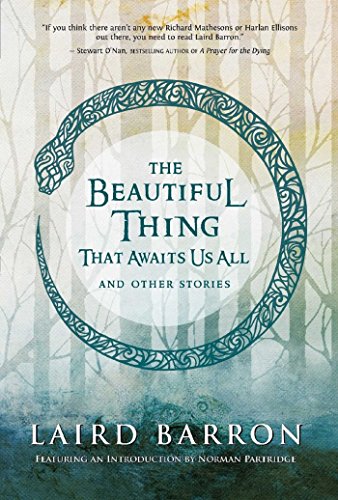
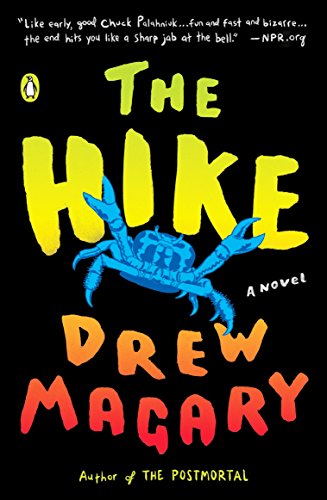
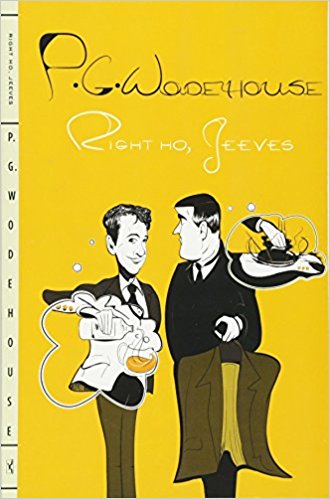

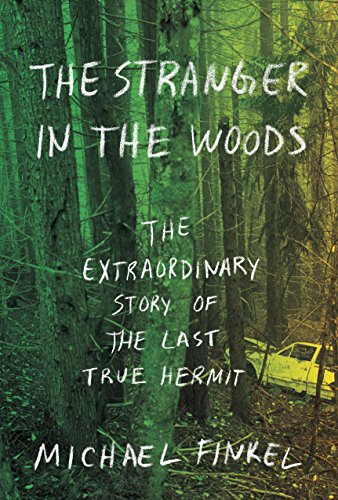


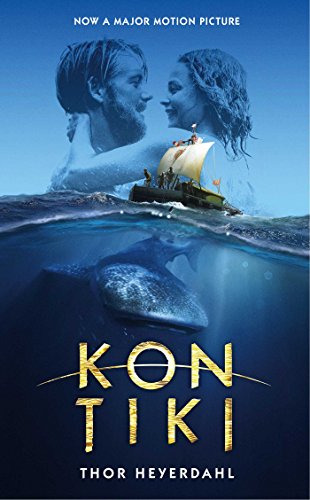

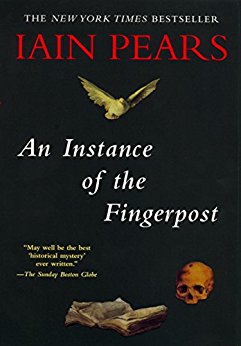


One thought on “Books: Summer 2017”